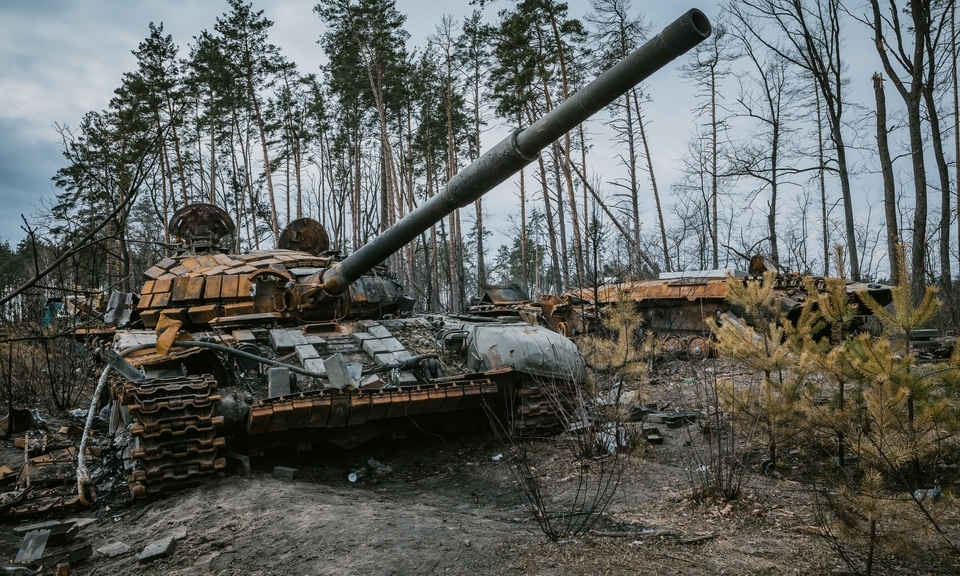Each month, Frédéric Munier, Director of the School of Geopolitics at SKEMA Business School, publishes a column in the magazine Pour l’Éco. One year after the invasion of Ukraine by Russia, he focused on a paradox: the world’s second military power expected to quickly dominate its neighbour, which is only in 22nd place. However, the Kremlin and Putin are in full flight. The lessons of Clausewitz and Luttwak.
In a major publication entitled Strategy: The Logic of War and Peace, the American geopolitical scientist Edward Luttwak highlighted the complex and eminently paradoxical nature of strategy.
In it, he explains how conflictual logic is the opposite of the logic that guides us in everyday life. Luttwak points out that, for example, in a state of war, a series of victories can lead to defeat if one moves too far away from one’s bases: this was the case with Napoleon’s Grande Armée during the invasion of Russia.
War is a human “art”
Another paradox is that numerical superiority does not guarantee victory: here we can cite the defeat of the French cavalry at Agincourt or, closer to our time, the American routs in Vietnam and Afghanistan.
This can be attributed to the deeply human nature of conflicts, in which the adversaries constantly adapt to each other. As Clausewitz already noted: ”war is no activity of the will, which exerts itself upon inanimate matter like the mechanical arts, […] but against a living and reacting force. How little the categories of arts and sciences are applicable to such an activity strikes us at once.”
One of the supreme paradoxes of strategy, however, is that victories are not cumulative: so an army may very well achieve tactical successes on the battlefield, yet lose the war at the “grand strategy” level. The war in Ukraine provides a striking illustration of this paradox.
Has Putin already lost the war?
The Russian army, after its initial victories, is currently in a fall-back situation. But even if we think that Moscow is capable of leading a massive counter-offensive, or of using unprecedented tactical means such as low-intensity nuclear weapons, the war in Ukraine is already lost at the grand strategy level.
Why? Let us recall what Vladimir Putin’s initial goals were in February: to take Kiev and to overthrow Zelenskiy’s government so as to subjugate the country.
What is the situation today? NATO, which was said to be “obsolete”, is stronger than ever, previously neutral countries like Finland have joined it, the strengthened European Union is withdrawing from its dependency on Russian gas, Germany is re-arming, and Ukraine has unified around a president, a former comedian, who has come to symbolise resistance.
Finally, the most dynamic young Russians are leaving their country to escape conscription, while China is observing Russia without providing any real support beyond words. Whatever Moscow’s tactical reaction, the war is already lost at the grand strategy level. Only the Kremlin is pretending not to know this at the moment…
This article was originally published in Pour l’Eco.







